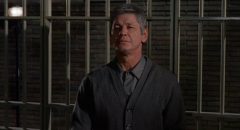
Three movies from producer-director Stanley Kramer, spread across two decades, highlight his liberal sensibilities … and expose the limits of that liberalism in the face of a messy world.

Criterion’s new Blu-ray edition of Benjamin Christensen’s Häxan (1922) reveals a startlingly complex and modern work; a multi-layered essay on the subject of the European witch craze of the 14th to 17th Centuries, the film is richly detailed exploration of religion, power and madness which still has relevance today.

Yet more recent random viewing: Joseph L. Mankiewicz’s movie-biz tragedy The Barefoot Contessa (1954); Lucio Fulci’s first and (almost) last gialli, One on Top of the Other aka Perversion Story (1969) anf The New York Ripper (1982); Ivan Nagy’s oddly poetic serial killer movie Skinner (1993); and some cheap bargains from the local drugstore.

More random viewing: two obscure independent films from the BFI, Margaret Tait’s poetic Blue Black Permanent (1992) and Maurice Hatton’s gritty fake-umentary about the film business, Long Shot (1977); and three from Twilight Time – George Sluizer’s interesting Americanization of his existential thriller The Vanishing (1993), Terrence Young’s straightforward fact-based crime saga The Valachi Papers (1972), and D.W. Griffith’s monumental but deeply troubling Birth of a Nation (1915).

Following the surprise international success of Gregory’s Girl (1980), writer-director Bill Forsyth was given greater resources by producer David Puttnam and made what on the surface was a whimsical comedy reminiscent of Ealing Studios in the ’50s; three-and-a-half decades later, the delightfully charming Local Hero (1983) can be seen as a subtly prescient warning about the most urgently pressing issues we now face – climate change and the need to find sustainable ways to inhabit the planet.

Criterion’s Blu-ray release of Ernst Lubitsch’s final completed feature, Cluny Brown (1946), presents this richly layered comic gem in a luminous 4K restoration. This underrated romantic comedy which skewers rigid British class attitudes on the eve of World War Two is one of Lubitsch’s masterpieces.

The late Peter Fonda briefly interrupted his acting career in the 1970s by directing three features, only the first of which is recognized now as a classic: The Hired Hand (1971). But the second, a no-budget science fiction movie called Idaho Transfer (1973), deserves to be rediscovered both for its sparely poetic treatment of time travel and its prescient vision of imminent ecological catastrophe. Unfortunately, it can now only be viewed as a lo-res, open-matte YouTube video.